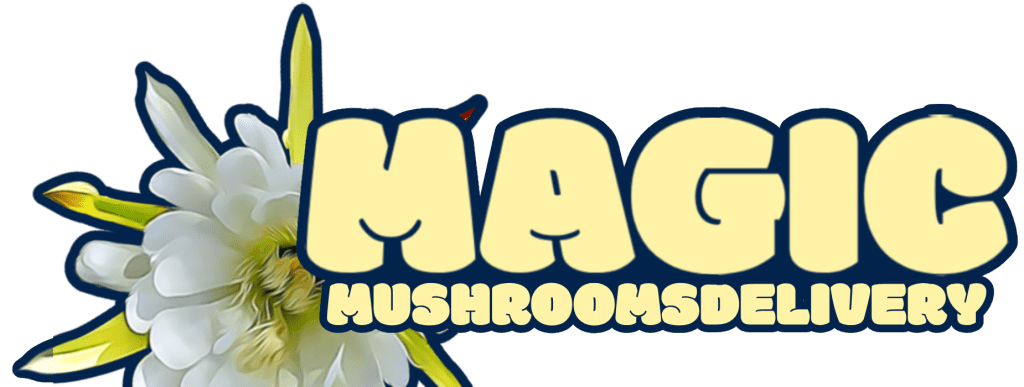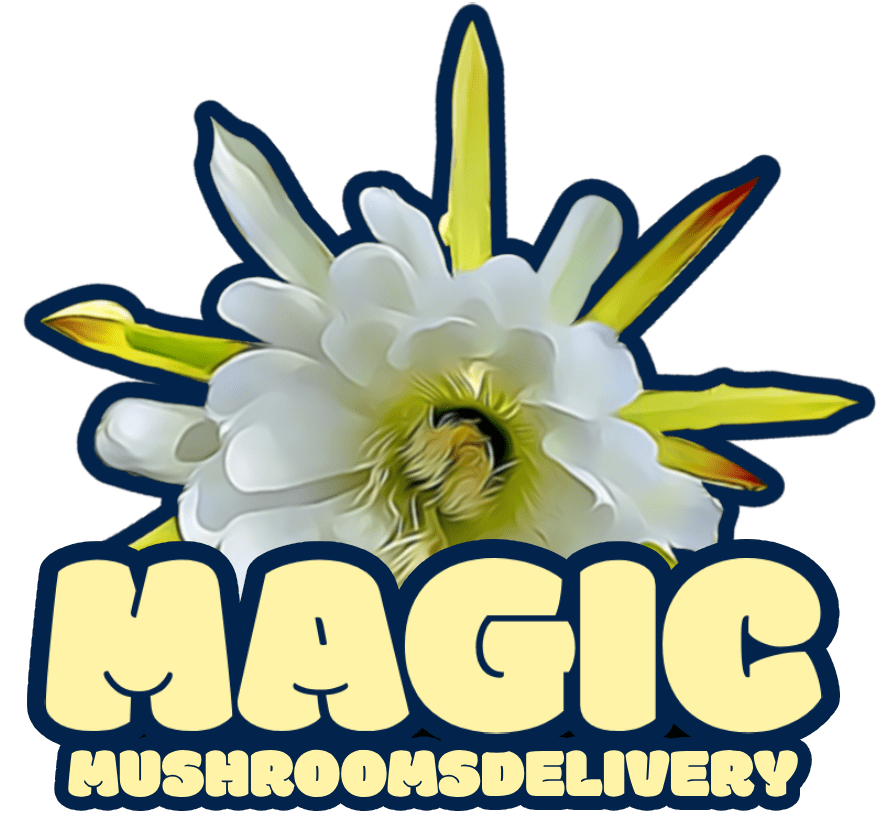

Why the Medical Value of Magic Mushrooms Will Surpass Cannabis in 2025 – Canada’s Shroom Boom vs. the Cannabubble
For mental health, psilocybin mushrooms provide a safe, science-backed, and affordable alternative. Mushrooms offer lower production costs. They provide safer consumption methods. Their therapeutic benefits don’t rely on intoxication. Mushrooms may soon outshine cannabis in popularity and effectiveness.
As this “shroom boom” gains momentum, it’s clear that magic mushrooms offer Canadians a unique and lasting path to wellness. Let’s explore why mushrooms are on track to surpass cannabis as the go-to natural remedy in Canada. We will highlight the key reasons that make them so attractive.
Advantages to Magic Mushrooms Over Cannabis
- More Affordable to Produce: Lower costs for production translate to better prices for consumers.
- Healthier Consumption Methods: Mushrooms are ingested, not smoked, reducing potential health risks.
- Non-Intrusive: Mushrooms don’t produce smoke or strong odors, making them discreet to use.
- Microdosing for Clarity, Not Intoxication: Mushrooms provide mental health benefits without impairing daily activities.
- Simple to Grow at Home: Cultivating mushrooms is accessible and low-cost compared to cannabis.
- Therapeutic without a High: Psilocybin offers benefits without the need for a high, ideal for daily mental wellness.
Shrooms Are More Affordable to Produce
One of the reasons mushrooms are gaining ground over cannabis is their affordability. Producing mushrooms is significantly cheaper than cannabis, making them accessible to a larger audience. Unlike cannabis, which requires extensive infrastructure (like high-powered lights, specific nutrients, and large spaces), mushrooms grow well in smaller, low-maintenance environments.
Breaking Down the Costs of Mushroom vs. Cannabis Cultivation
Here’s how production costs stack up between mushrooms and cannabis:
- Cultivation Cost Per Square Foot:
- Magic Mushrooms: Approx. $10–$15 (using containers and substrate).
- Cannabis: $50–$75 (with high-powered lighting, ventilation, and nutrients).
- Electricity Usage:
- Magic Mushrooms: Minimal to none, as lighting isn’t usually required.
- Cannabis: Up to 2,000 kWh per plant cycle, roughly equivalent to running an air conditioner 24/7 for a month.
- Initial Setup Cost for Small Operations:
- Magic Mushrooms: $1,000–$2,000 for a small, efficient setup.
- Cannabis: $10,000+ due to costly lighting, HVAC, and nutrient systems.
- Potential Monthly Operational Costs:
- Magic Mushrooms: $100–$200, mostly for substrates and basic maintenance.
- Cannabis: $500–$1,000+, with significant energy costs for lighting and ventilation.
Because mushrooms require fewer resources, they can be sold at a much lower price than cannabis. Research from Johns Hopkins University has shown that psilocybin’s low production costs make mental health care more affordable. Studies continue to demonstrate psilocybin’s efficacy for conditions like depression, PTSD, and anxiety.
A Healthier, Smoke-Free Option for Natural Wellness
Mushrooms offer an attractive advantage for those who prefer not to smoke. While cannabis is commonly consumed by smoking or vaping—methods that carry potential respiratory risks—mushrooms are ingested, usually in capsules, teas, or edibles. This gentler approach makes mushrooms a healthier choice, avoiding the lung irritation and respiratory concerns associated with smoking cannabis.
Key Health Stats on Mushrooms vs. Cannabis Consumption
- Lung Health:
- Cannabis Smoking: Associated with a 70% increased risk of respiratory issues, including chronic bronchitis.
- Mushrooms (Oral Consumption): No impact on respiratory health.
- Consistency in Dosage:
- Mushrooms: Standardized capsules or edibles allow for precise dosing.
- Cannabis: Variable effects when smoked or vaped, with dosages difficult to control.
- Associated Health Risks:
- Cannabis: Higher potential for respiratory issues and cognitive impairment with long-term use.
- Mushrooms: No respiratory risks; microdosing psilocybin has no known long-term health effects.
Health-conscious Canadians may find mushrooms to be a safer addition to their wellness routines. This is particularly true for those managing chronic conditions. Public figures like Tim Ferriss have endorsed psilocybin microdosing. They highlight the benefits for mental clarity and well-being. These benefits come without the health drawbacks linked to smoking.
Mushrooms Offer Discreet, Non-Intrusive Wellness
Magic mushrooms are nearly invisible in their use, unlike cannabis, which often comes with a noticeable odor and visible smoke. This makes mushrooms easier to integrate into daily routines without drawing unwanted attention. Whether in a capsule, tea, or edible form, mushrooms don’t disturb others and allow users a private wellness experience.
Pros and Cons of Mushroom vs. Cannabis Consumption in Public
- Mushrooms:
- Pros: Odorless, easy to consume privately, non-disruptive.
- Cons: Typically consumed alone, geared more toward personal wellness.
- Cannabis:
- Pros: Socially accepted in some circles, commonly used in group settings.
- Cons: Lingering odor, potential for disruptive effects in shared spaces.
For Canadians who want a low-profile approach to wellness, mushrooms offer the perfect solution—no smell, no smoke, no fuss. Picture them as the “introverted wellness option”—effective, quiet, and respectful of personal space.
Microdosing Mushrooms – Mental Clarity Without the Intoxication
Microdosing is one of the most popular ways to use magic mushrooms. It involves taking a very small, controlled amount of psilocybin. In contrast to cannabis, which can impair cognitive function even at low doses, microdosing mushrooms offers mental health benefits. These include improved mood and focus without causing any “high” or impairment.
Comparing Microdosing Mushrooms and Cannabis
| Feature | Psilocybin Mushrooms (Microdosing) | Cannabis (Low Dose) |
|---|---|---|
| Effect on Focus | Enhanced focus and creativity | Mixed: Can improve or reduce focus |
| Mood Impact | Reduces anxiety, improves mood | Varied: May cause anxiety in some |
| Functionality | Maintains full functionality | Can impair motor skills or cognition |
| Therapeutic Benefits | Effective for mood stabilization | Primarily relaxing with short-term impact |
| Duration of Effects | Up to 48 hours | Typically 2–6 hours |
Microdosing mushrooms has gained traction among various groups. Professionals, artists, and athletes use it to enhance focus, mood, and creativity. They do this without compromising performance. Steve Jobs once praised the clarity he experienced with psychedelics, comparing it to a creative awakening. For those looking to enhance productivity and mental wellness, microdosing psilocybin offers a balanced, grounded option.
Shrooms Are Easier and Cheaper to Grow at Home
For those interested in cultivating wellness at home, magic mushrooms offer an accessible and cost-effective solution. While cannabis requires specialized equipment, dedicated space, and high energy costs, mushrooms can thrive in compact, low-maintenance setups.
Cost Comparison for Home Growing
- Startup Cost:
- Mushrooms: $50–$100 (substrate, containers, basic tools).
- Cannabis: $500–$1,000+ (lights, nutrients, ventilation).
- Growth Cycle:
- Mushrooms: 4–6 weeks.
- Cannabis: 12–16 weeks.
- Energy Use:
- Mushrooms: Minimal, with little to no lighting required.
- Cannabis: Significant, often requiring 12+ hours of high-powered lighting.
Growing mushrooms at home requires minimal investment, making it a realistic option for Canadians who want to control their own wellness journey. Unlike cannabis, mushrooms don’t involve complex legal hurdles or significant time and energy investments, making them ideal for beginners.
Shrooms Offer Therapeutic Benefits Without the High
Perhaps the most appealing aspect of psilocybin mushrooms is their ability to offer therapeutic benefits without any need for intoxication. While cannabis often requires a certain level of “high” to be effective for mental health purposes, psilocybin in microdose form provides support for depression, anxiety, and focus without altering perception.
Imagine mushrooms as the “smart supplement” of wellness. They offer benefits that adapt to the user’s needs—whether for calm, focus, or emotional resilience. Research from The New England Journal of Medicine found psilocybin effective in treating major depressive disorder. It does not require a full psychedelic experience. Unlike cannabis, mushrooms provide sustainable mental health support with no known side effects from microdosing.
Microdosing Magic Mushrooms vs. Cannabis
Is microdosing legal in Canada? Currently, microdosing psilocybin remains restricted under Canadian law, though exemptions exist for medical and research purposes. Advocacy efforts are underway to allow for expanded access in mental health treatments.
How safe are mushrooms compared to cannabis? In moderate, controlled doses, mushrooms are considered safe with no significant long-term health effects. Cannabis, especially when smoked, carries potential risks related to respiratory health and cognitive function.
How long do the effects of microdosing last? The therapeutic benefits of a psilocybin microdose can last up to 48 hours, with no intoxication. By contrast, cannabis effects typically last between 2–6 hours and can impair motor skills.
What’s Next for Magic Mushrooms in 2025?
The future for psilocybin mushrooms looks promising, especially as more research supports their mental health benefits. By 2025, we anticipate major shifts in both the perception and accessibility of magic mushrooms across Canada:
- Legal Advancements: As awareness of psilocybin’s benefits grows, regulatory bodies may consider legal frameworks for therapeutic psilocybin use. This could mean expanded access for those seeking treatment for depression, anxiety, and PTSD. We’ve already seen a precedent set by cities like Denver, Colorado, and initiatives in Oregon, which have moved to decriminalize or regulate mushrooms for medical use. Canada could be next in line.
- Increased Research and Clinical Applications: By 2025, we’re likely to see more clinical trials. These trials will investigate psilocybin’s effects on various mental health conditions. Major institutions are leading the way. These include Johns Hopkins University and Imperial College London. Their research may prompt Canadian institutions to join in. With evidence mounting, it’s possible that psilocybin-based treatments will become more mainstream and available through licensed therapists and wellness centers.
- Mainstream Acceptance and Wellness Integration: As stigma fades, magic mushrooms may become a part of the regular wellness toolkit for Canadians. Psilocybin could be embraced as a natural way to manage stress. It may also boost creativity and support emotional well-being. We anticipate seeing more integration of psilocybin in products like capsules, teas, and edibles. These formats are accessible and easy to use for mental wellness.
- Educational Campaigns and Responsible Use: With rising demand, responsible usage will be essential. By 2025, we may see educational campaigns that focus on the safe and informed use of psilocybin. These campaigns will emphasize microdosing as a key method to maximize benefits without intoxication. Organizations and health advocates will likely push for greater public understanding of psilocybin. They will encourage Canadians to approach it with intention and care.
Conclusion – Our Thoughts on the Shroom Boom’s Potential
The journey of magic mushrooms in Canada is just beginning, and it’s an exciting time for those of us in the wellness space.
We advocate for safe, effective, and affordable mental health solutions. We believe psilocybin has the potential to transform how we approach well-being. Unlike cannabis, which had a rapid rise and a mixed public perception, magic mushrooms seem to be unfolding more thoughtfully. They are backed by science and responsibly explored by consumers.
We expect magic mushrooms to become a key part of the mental health conversation. As awareness grows, people are discovering that mushrooms offer benefits that go beyond recreation—they’re about genuine wellness, healing, and transformation. People who want to enhance their mental clarity have an option with psilocybin mushrooms. These mushrooms help ease anxiety. They also provide an alternative to pharmaceutical treatments.
Looking forward to 2025, we’re hopeful that the shroom boom will expand access to this remarkable natural remedy. It could also reshape how we think about mental health in Canada. The future of wellness is about choices, and magic mushrooms represent one of the most promising new choices on the horizon.
Tommy Lee
Table of Contents
Canada’s Mushroom Dispensary
Calgary
We deliver magic mushrooms same day in Calgary. Enjoy quick delivery within 60 minutes anywhere within city limits between 10am and 9pm daily.
Canada
Canada's magic mushroom delivery service. We bring shrooms to your place in 1 - 4 days depending where you are in Canada. Shrooms near me? We have you covered.
Be first on the list to get notified about our sales, new genetics and drops before they sell out!

